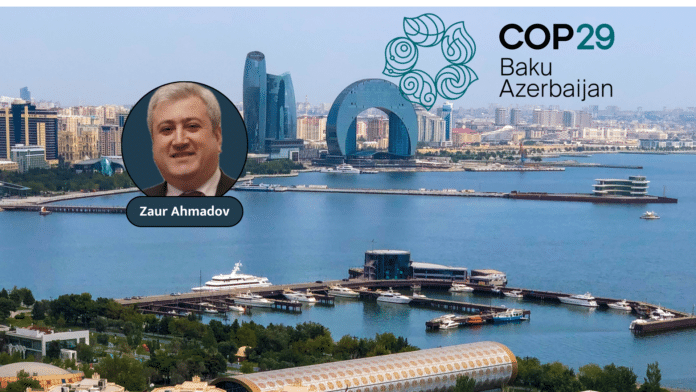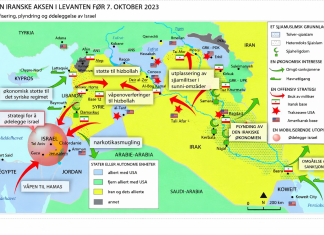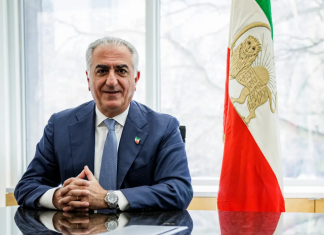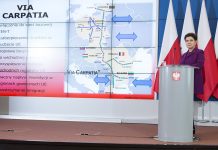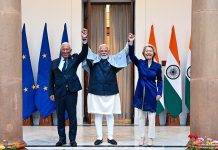Critics have questioned Azerbaijan’s hosting of COP29, labeling it an attempt at “greenwashing” amid ongoing regional tensions.
If hosting a major international event qualifies as “image-washing,” then the same standard should be applied universally. These accusations also overlook the broader geopolitical context and disregard Azerbaijan’s genuine efforts to address climate change and promote peace in the South Caucasus.
The decision to host COP29 was partly due to recent normalization efforts with Armenia, which supported Azerbaijan’s bid. Today, the two nations are moving beyond nearly 30 years of conflict, during which Armenia occupied about 20% of Azerbaijan’s internationally recognized territories, devastating entire cities and villages and displacing approximately 700,000 Azerbaijani civilians. The aftermath left around 1.5 million landmines, posing ongoing risks to civilians and hindering redevelopment. Demining these areas is a significant challenge, requiring billions of dollars and decades of work.
The September 2023 operation in Karabakh aimed to restore Azerbaijan’s full sovereignty by targeting the remnants of Armenia’s armed forces and was not directed at civilians. Some critics have wrongly portrayed the relocation of Armenians from Karabakh as ethnic cleansing, overlooking Azerbaijan’s efforts to encourage them to remain as part of its multi-ethnic society. The relocation was voluntary, as confirmed by UN missions in the area, which found no evidence of violence against those leaving. This movement appeared to be driven by entrenched Armenian narratives of separatism and ethnic incompatibility.
In the late 1980s, approximately 300,000 Azerbaijanis were forcibly expelled from Armenia. This historical injustice is a crucial part of the narrative and should not be overlooked in discussions of the humanitarian aspects of the former conflict.
Significant progress has been made in the peace process between Armenia and Azerbaijan, with around 80% of the draft peace agreement already settled. However, Armenia’s refusal to remove territorial claims against Azerbaijan from its constitution remains a major obstacle.
Armenia has also been reluctant to facilitate the Zangezur Corridor, a proposed land link and infrastructure project that would connect mainland Azerbaijan with its Nakhchivan exclave. This corridor could enhance regional connectivity and foster economic cooperation, while also providing Armenia with better access to international markets. It serves also as a potential confidence-building measure rather than a geopolitical threat.
Les også: COP29 Truce: Uniting for Global Climate Action and Peace
The ongoing militarization of Armenia, supported by some external powers, including through the European Peace Facility, has raised concerns about the risk of renewed conflict. This militarization fuels revanchist sentiments within Armenia and therefore undermines the peace process.
Azerbaijan has consistently demonstrated its commitment to regional cooperation through initiatives such as the “3+3” format, which seeks to foster collaboration among South Caucasian and neighboring countries. Our approach to regional cooperation echoes the Nordic model, with the potential to transform the South Caucasus into a region characterized by stability and shared prosperity.
Contrary to some allegations, the COP29 Truce initiative is not merely a public relations gesture but a meaningful call for a pause in hostilities during the climate summit, akin to the Olympic Truce. The initiative acknowledges the interconnectedness of peace and environmental sustainability, emphasizing how conflicts exacerbate climate vulnerabilities. Given Azerbaijan’s own experiences with conflict-related ecological damage, the truce is a sincere effort to promote global cooperation on climate action.
Some of the previous COPs have been hosted by other fossil-producing countries without hindering international cooperation on climate change. Azerbaijan is committed to transitioning to renewable energy despite being a significant fossil fuel producer. The country has set a target of achieving a 30% share of renewable energy in its total energy mix by 2030, underscoring its dedication to reducing carbon emissions. Azerbaijan’s abundant wind and solar resources position it as a key player in the regional green energy landscape, with plans to export renewable energy to Europe via a Black Sea submarine cable.
In foreign policy, Azerbaijan has consistently pursued a multivector approach, emphasizing balanced relations with all its neighbors. The country has a history of contributing to international peace and security, including during its membership in the UN Security Council and its recent chairmanship of the Non-Aligned Movement. This balanced approach contrasts with other regional countries’ decades-long reliance on military alliances and the presence of foreign military bases on their territories.
In conclusion, COP29 presents a unique opportunity for all parties, including Armenia, to collaborate on urgent global challenges such as climate change. By extending an invitation to Armenia, Azerbaijan underscores the summit’s inclusive spirit, aiming to transcend political tensions. Rather than perpetuating negative allegations, critics should view COP29 as a chance to bridge divides and advance shared climate goals.
COP29 in Baku: A Climate Summit in the Shadow of Militarism and Ethnic Cleansing



